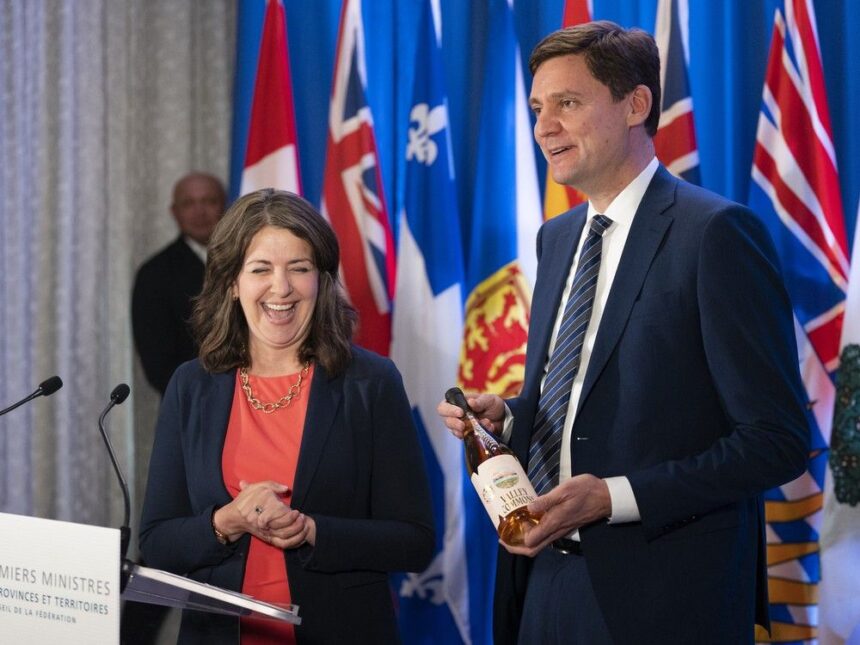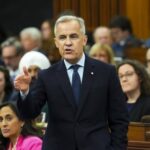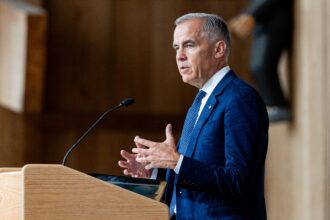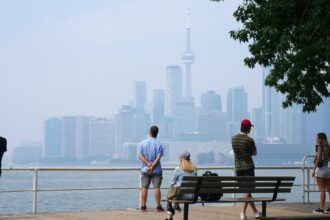In a striking development that underscores the deepening regional divisions over energy infrastructure, Prince Rupert Mayor Herb Pond has aligned himself with British Columbia Premier David Eby against Alberta Premier Danielle Smith’s renewed push for the Northern Gateway pipeline project.
“I think we need to be careful about how much political capital we spend on battles that have been fought and lost,” Mayor Pond told reporters Tuesday, effectively pouring cold water on Premier Smith’s recent advocacy for reviving the controversial pipeline proposal that was rejected by the federal government in 2016.
The Northern Gateway pipeline, originally proposed by Enbridge, would have transported diluted bitumen from Alberta’s oil sands to a marine terminal in Kitimat, B.C., traversing some of Canada’s most ecologically sensitive watersheds and First Nations territories. The project faced fierce opposition from environmental groups and Indigenous communities before being officially rejected by Prime Minister Justin Trudeau’s government.
Premier Smith has recently called for the project to be reconsidered, arguing that Canada needs additional energy export capacity. “We’re talking about a pipeline that would have been built by now… and would have been sending additional barrels to the world market,” Smith stated during a press conference last week.
However, B.C. Premier Eby has firmly rejected the proposal’s revival, calling it “dead” and suggesting that Smith’s advocacy represents political posturing rather than practical policy. “I think Premier Smith knows the Northern Gateway pipeline is dead,” Eby told the CO24 Politics team in an exclusive interview. “This project isn’t happening.”
Mayor Pond’s position carries particular weight given Prince Rupert’s strategic location on B.C.’s northern coast and its status as a potential alternative terminus for pipeline projects. While acknowledging the importance of responsible resource development, Pond emphasized that any such initiatives must meaningfully involve First Nations communities and address environmental concerns.
“We have an opportunity to do things differently in the north,” said Pond. “Projects need to be built in true partnership with First Nations. The days of simply consulting and then proceeding regardless are over.”
Economic analysis suggests the renewed debate reflects deeper tensions in Canada’s energy policy. With global markets increasingly shifting toward renewable energy sources, Canadian officials face difficult decisions about long-term infrastructure investments. The Trans Mountain pipeline expansion, currently under construction, has already increased Canada’s oil export capacity significantly, raising questions about the economic viability of additional pipeline projects.
Indigenous leaders have also weighed in on the renewed debate. Coastal First Nations executive director Christine Smith-Martin emphasized that their opposition to Northern Gateway remains unchanged. “Our position has not changed. This project represented unacceptable risks to our territories, waters, and way of life,” she stated.
Environmental economists point out that global energy market dynamics have shifted dramatically since Northern Gateway was first proposed. “The economics of these massive pipeline projects look very different in today’s market compared to a decade ago,” Dr. Eleanor Stephenson, energy economist at the University of British Columbia, told CO24 Business.
As this inter-provincial dispute unfolds, it raises profound questions about Canada’s energy future: How will the nation balance its role as an energy producer with its climate commitments, and can regional differences over resource development be reconciled in ways that respect Indigenous rights and environmental protection? The answers may well determine the trajectory of Canada’s economic and environmental policies for decades to come.










